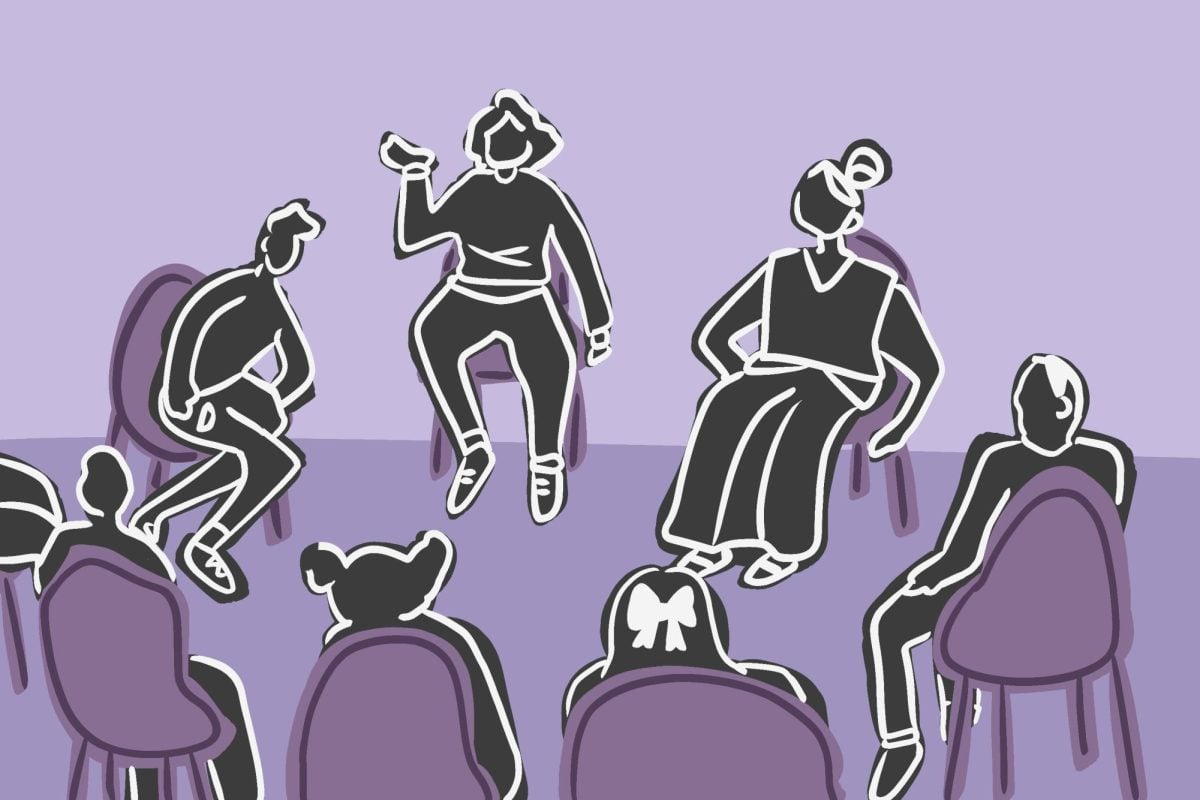During Weinberg senior Sophia Scott’s first year at Northwestern, she began to develop chronic illnesses. By her sophomore year, Scott was interested in joining an organization supporting students like her — but at the time, none existed.
Now, two years later, Scott is the president of Chronic Illness Alliance, which saw 55 sign-ups at the student organization fair on Sept. 24, and is working to provide a space for students with chronic illness or disabilities on campus.
Weinberg senior and Chronic Illness Alliance Education Chair Sophie Koenig similarly looked for comfort on campus. Koenig has had chronic illnesses all her life but experienced an escalation in symptoms when she entered NU.
For Koenig, these symptoms made her college experience look different from many other students.
“I was really looking for somewhere where I could find community and support and people who understood what that was like to have that especially in college and at this age,” Koenig said. “I was really grateful to find a space like Chronic Illness Alliance.”
Last year, Scott said she and McCormick senior Haris Bukaric were focused on getting the organization off the ground.
While Bukaric does not have any chronic illnesses, he co-founded the organization with Scott to support her.
“It felt important to me to start the club and then, through the club and through talking to other members, learn more about what it means to give support to your loved ones or just people in your community with any kind of health conditions,” Bukaric said.
Scott said they created educational content for Instagram and flyers to post around campus, as well as collaborated with AccessibleNU on making a guide to simplify requesting classroom accommodations for students.
However, Scott said disabled students do not have a “seamless” relationship with ANU.
“From who we’ve spoken to, people do feel that sometimes it requires a lot of justification to have to prove you’re sick enough or disabled enough to need a certain accommodation,” Scott said.
While Scott said ANU can be a helpful option, many students go directly to their professors to ask for accommodations.
Bukaric said the organization heard some stories about particular departments not allowing lectures to be recorded, which he said may prevent some students from keeping up with their classes while ill.
This year, the organization plans to host forums to speak with students about their experiences with professors and accommodations, according to Bukaric. He said these forums will give students information to form a faculty guide to accommodations.
Going forward, Koenig said she wants to keep striving to improve accessibility for students.
“I just want an increased awareness that accessibility should always be a consideration and an area we’re striving to improve, and that even if someone doesn’t have a visible disability, there may be a disability or chronic illness that someone has that you can’t see,” Koenig said.
For Scott, the organization’s significance goes beyond campus.
“A lot of the times in disability policy, the voices of disabled people themselves have been left out of the conversation,” she said. “If we can continue doing that work … just having the space for community and to share the perspective of disabled students to make the changes that will improve the disabled student experience.”
Email: kaavyabutaney2026@u.northwestern.edu
Related Stories:
— Chicago area hospitals maintain mask mandates amid spread of respiratory illnesses
— Future of LGBTQ+ housing on campus remains uncertain amid negotiations







